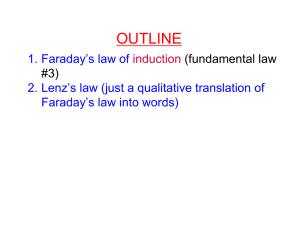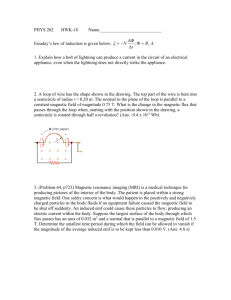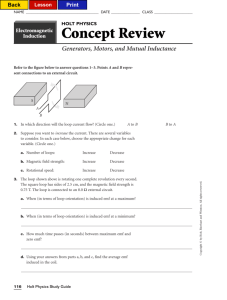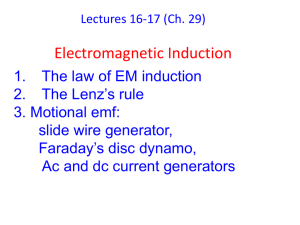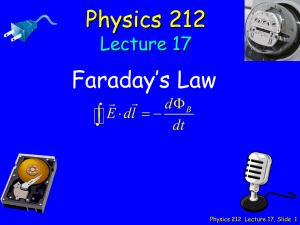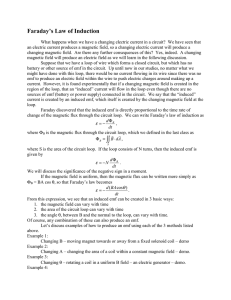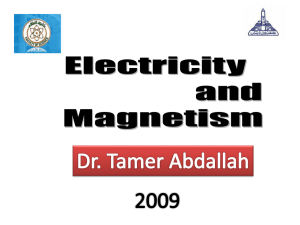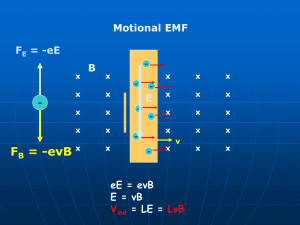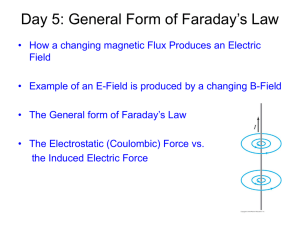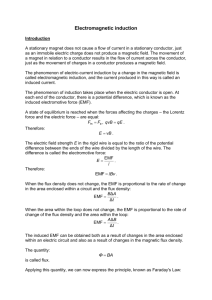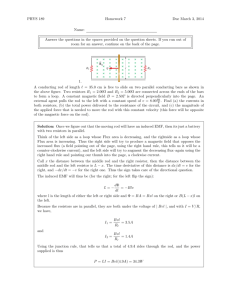chapter33.4 - Colorado Mesa University
advertisement
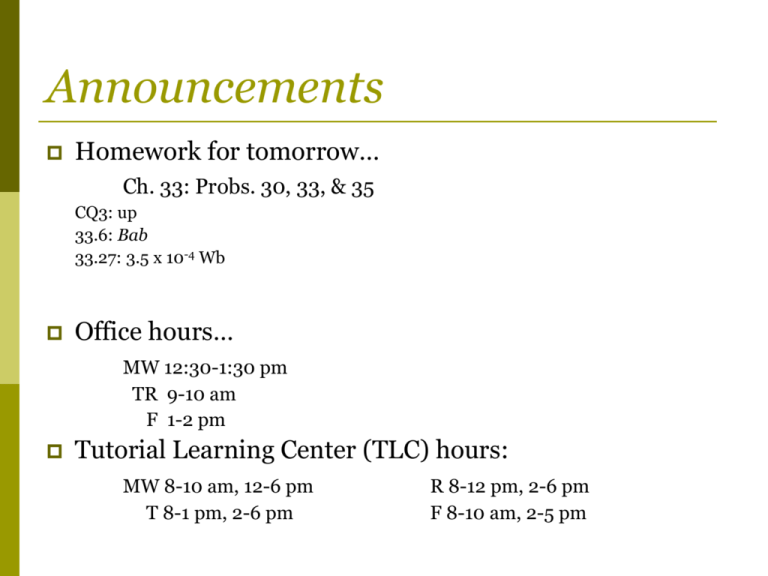
Announcements Homework for tomorrow… Ch. 33: Probs. 30, 33, & 35 CQ3: up 33.6: Bab 33.27: 3.5 x 10-4 Wb Office hours… MW 12:30-1:30 pm TR 9-10 am F 1-2 pm Tutorial Learning Center (TLC) hours: MW 8-10 am, 12-6 pm T 8-1 pm, 2-6 pm R 8-12 pm, 2-6 pm F 8-10 am, 2-5 pm Chapter 33 Electromagnetic Induction (Faraday’s Law) Last time… Lenz’s Law is… There IS an induced current in a closed, conducting loop if and only if the magnetic flux through the loop is changing. The direction of the induced current is such that the induced B-field opposes the change in flux. Faraday’s Law is… i.e. 33.9 Current induced by an MRI machine The body is a conductor, so rapid B-field changes in an MRI machine can induce currents in the body. To estimate the size of these currents, and any biological hazard they might impose, consider the “loop” of muscle tissue shown in the figure below. This might be muscle tissue circling the bone of your arm or thigh. Although muscle is not a great conductor – it’s resistivity is 1.5 Ω m – we can consider it to be a conducting loop with a rather high resistance. Suppose the B-field along the axis of the loop drops from 1.6 T to 0 T in 0.30 s, which is about the largest possible rate of change for an MRI solenoid. What current will be induced? What does Faraday’s law tell us? Faraday recognized that ALL induced currents are associated with a changing magnetic flux. Two different ways to change the magnetic flux: 1. The loop can expand, contract, or rotate, creating a motional emf. 2. The B-field can change. What does Faraday’s law tell us? Faraday recognized that ALL induced currents are associated with a changing magnetic flux. Two different ways to change the magnetic flux: 1. The loop can expand, contract, or rotate, creating a motional emf. 2. The B-field can change. What does Faraday’s law tell us? Faraday recognized that ALL induced currents are associated with a changing magnetic flux. Two different ways to change the magnetic flux: 1. The loop can expand, contract, or rotate, creating a motional emf. 2. The B-field can change. Motional emf New physics! 33.28 A 5.0 cm diameter coil has 20 turns and a resistance of 0.50 Ω. A B-field perpendicular to the coil is B = 0.020t+0.010t2, where B is in tesla and t is in seconds. a. Find an expression for the induced current I(t) as a function of time. b. Evaluate I at t = 5 s and t = 10s. 33.32 A circular loop made from a flexible, conducting wire is shrinking. Its radius as a function of time is r(t)=r0e-βt. The loop is perpendicular to a steady, uniform magnetic field B. Find an expression for the induced emf in the loop at time t.
